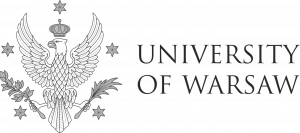Solidarity with Ukraine – 4EU+ for Ukraine II / series of online workshops „Digital Innovation in Teaching & Learning”



Within the project “Solidarity with Ukraine – 4EU+ for Ukraine II” we would like to invite the academic staff of our Ukrainian partner universities to participate in a series of online workshops “Digital Innovation in Teaching & Learning”, organised by 4EU+ alliance. It is possible to participate in all of them or just in one or two, according to preference.
1. Regression analyses and agent based modeling in humanities and social science
Field of study: humanities/social science
Lecturer: dr Paulina Komar
Date: April 10th, 2024 (Wednesday)
Time: 16:00-18:00 CET (2 h)
Where? online
About: In recent years, the integration of quantitative methods and computer simulations into humanistic research opened up a number of new possibilities in scholarly inquiry. Regression analyses and agent-based modeling, so far commonly used in science and natural science, are gradually complementing traditional humanistic and social science methodologies. Linear regression is one of basic statistical tools that allows to test and compare the relation between two variables. It can be used in many different scientific disciplines in order to test hypotheses or predict results, and it does not need any special software, apart from Excel. Agent-based modeling (ABM) has emerged as a powerful computational tool for simulating complex systems and understanding emergent phenomena across various disciplines. By simulating the interactions of autonomous agents with specified behaviors and characteristics, ABM enables to explore dynamic processes and emergent patterns that may not be readily apparent through traditional methods. It can be a valuable methodological approach for researchers seeking to study phenomena such as cultural transmission, language evolution, historical and societal change as well as economic dynamics.
This workshop is dedicated for scholars seeking to expand their methodological toolkit and engage with quantitative approaches and computer simulations in their research endeavor. By demonstrating methodological principles, practical applications and interpretation of results of regression analyses and ABM it will encourage interdisciplinary collaboration in advancing knowledge across academic disciplines.
2. Developing Green Matter
Field of study: social science
Lecturer: dr hab. Agata Dziewulska
Date: April 11th, 2024 (Thursday)
Time: 15:00-17:00 CET (2 h)
Where? online
About: Environmental changes are a challenge for policy-makers and educators. The number of interconnections between elements of our reality influenced by a shift in any given area is
unknown and cannot be determined. This makes the current reality complex and unpredictable. Therefore, the urgent need to research reality and teach about it coincides with ambiguity related to the effective methods. Old ways of doing things may easily fail in new circumstances. At the University of Warsaw, we used elements of participatory education and problem-based learning to help students build an energy security strategy for Poland. This course was open to all students, involved a significant amount of individual and group work, and was structured to challenge participants to create an effective energy security mechanism for the country.
The ‘Developing Green Matter’ workshop aims to introduce new ideas for teaching about environmental issues, the logic and structure of the "Energy Security Strategy for Poland"
course, the type of participants involved, the workflow, examples of exercises, and the outcome.
3. Games in Education – practical aspects
Field of study: social science
Lecturer: dr Michał Mijal
Date: April 12th, 2024 (Friday)
Time: 10:00-12:00 CET (2 h)
Where? online
About:
o Games and simulations in general
– Differencies
– Similarities
o Goal of the game and goal of the class – how to allign them
– Chances
– Limitations
o Types of interaction in games
– Four types of interaction
– Interaction and goal of the activity
o Traditional class vs. online class
– Most common mistakes
– Overlap
o Examples of games in training and education
– Professional training
– Class setting
In order to participate in workshops on 10, 11 & 12.04, please fill out this Registration Form by April 8th.
4. Exploration of 3D printing technology and focusing on its applications and implications in educational contexts
Field of study: natural science
Lecturer: dr Michał Bykowski
Date: April 18th, 2024 (Thursday)
Time: 15:00-17:00 CET (2 h)
Where? online
About:
The workshop offers an exploration of 3D printing technology, focusing on its applications and implications in educational contexts. Participants will gain an understanding of the historical development of 3D printing, its current accessibility, and its relevance in modern educational settings compared to traditional teaching aids. The workshop will examine the advantages and limitations of 3D printing and 3D scanning, providing insights into printing techniques and materials as well as model preparation. Although direct printing is not included, participants will learn how to source 3D models online and prepare them for printing. The session also covers locating 3D printing facilities, basics of creating custom models, and common challenges The workshop is designed to equip educators and students with the knowledge to effectively integrate 3D printing into their teaching and learning processes.
1. Introduction
– Brief overview of 3D printing.
– Historical context and the significance of its accessibility now.
2. 3D Printing vs. Traditional Teaching Aids
– Discussing traditional aids (papier-mâché, wood, glass models) vs. 3D models.
– The pros and cons of 3D printing in educational settings.
3. Hands-on Activities
– Getting a 3D Model Online
– websites with free 3D models.
– tips on choosing the right model for educational purposes. • – – Choosing Materials and Techniques:
– Overview of materials and printing techniques.
– Discussion on what suits different educational needs.
– Preparing for 3D Printing:
– Introduction to software tools
– Step-by-step guide on preparing a model for printing.
4. Further resources
– How to find 3D printers in universities or local areas.
– Basics of designing custom models.
– 3D scanning – possibilities and limitations
– List of further resources, tutorials, websites and classes
5. Teaching sensitive topics in sensitive times – SensiClass Platform
Field of study: social science
Lecturer: dr Urszula Markowska-Manista
Date: April 22nd, 2024 (Monday)
Time: 17:00-19:00 CET (2 h)
Where? online
About:
The aim: to enable academic teachers to discuss sensitive topics in a student-centered way
The workshop aims to equip academic teachers with the knowledge and skills to work in the area of sensitive topics in socially and culturally diverse communication and didactic contexts of HEIs, especially to enhance their ability to discuss sensitive topics. Participants will reflect on their own teaching strategies and approaches in the field of sensitive topics on the basis of e-learning exercises and Toolbox. They will analyse cases to adapt knowledge to create effective learning experiences. The workshop will be interactive. It will be based on short introductions, joint activities, collaborations, discussions and practical exercises.
In order to participate in workshops on 18 & 22.04, please fill out this Registration Form by April 8th.